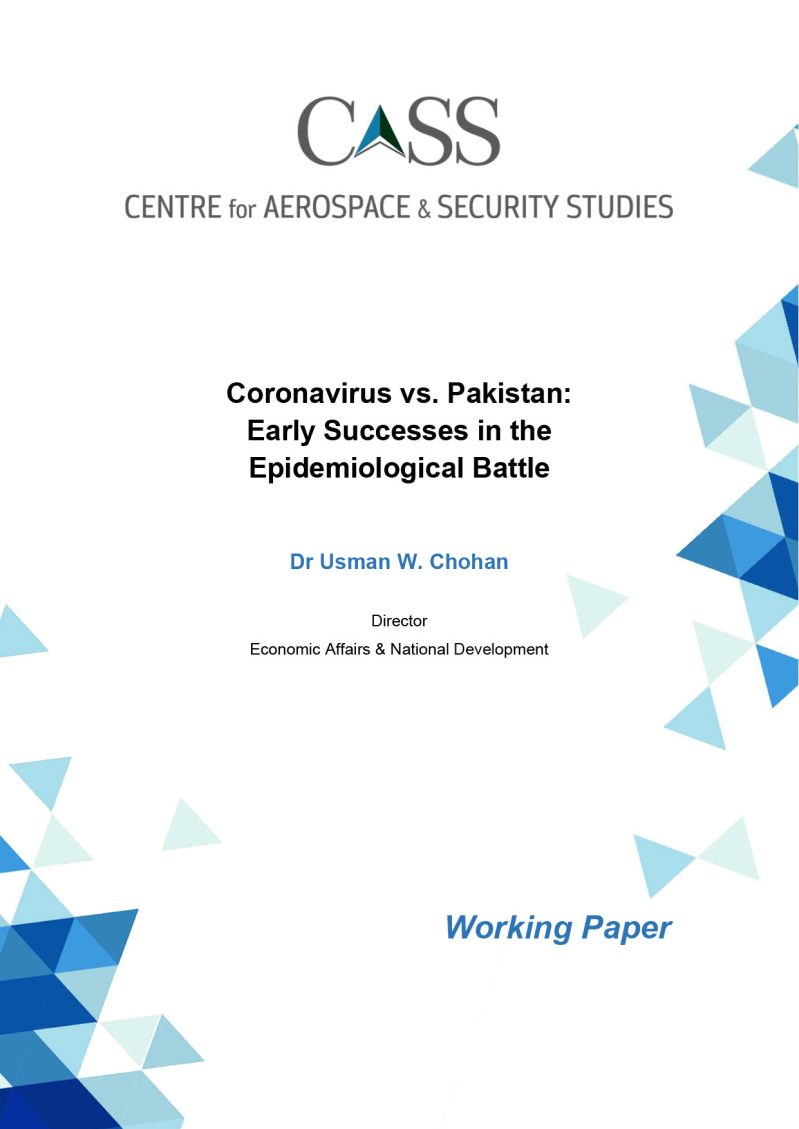Abstract
Why was Covid-19’s toll comparatively mild in Pakistan? This Working Paper seeks to tease out possible causal factors for Pakistan’s early success against Covid-19. Some elements are structural in nature, while others a function of policy approaches. It should be noted at this juncture as well that the aim of this paper is not to sound a celebratory bugle while the Pandemic persists around the world. Nor is it to suggest that Pakistanis should lower their guard. The Coronavirus Pandemic remains an ongoing concern. That said, it is worth exploring some factors that might help to collectively explain Pakistan’s success thus far against the Pandemic. The paper proceeds to highlight some factors worth considering, but they are presented in no particular order as their discrete contribution is still indeterminate. The factors include: a young population, a low obesity rate, a non-specific immunity, urban design, social conservatism, smart lockdown policies, proactive political attitude (low denialism), strong civil society response and curbing rural transmission.





